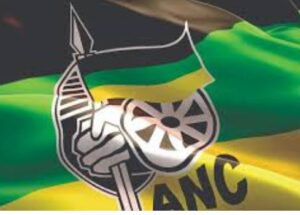Esther Chitora
Harare—The African National Congress (ANC) suffered a historic slump in popularity last week when, for the first time since majority rule in 1994, it got less than 50 percent of the vote, but it was quick to accept poll results and admitted to its own faults.
This is in sharp contrast to how a fellow liberation movement, Zimbabwe’s Zanu PF, has conducted itself at elections for decades.
The party got 40.2 percent of the ballots, an 18 percent decline from the previous elections in 2019.

The Democratic Alliance (DA) came in second with just under 22 percent while uMkhonto weSizwe (MK), an outfit formed in the run-up to the general elections and fronted by former president, Jacob Zuma, was the noise-maker, taking third position at 15 percent, ahead of Julius Malema’s Economic Freedom Front (EFF).
Having lost a 30-year majority, the party’s secretary general, Fikile Mbalula, acknowledged his party’s waning fortunes in a statement on Sunday and hinted at a coalition with rival political parties.
“While the ANC has won most votes in this election, the results show a significant decline in the party’s support from previous elections.
“While there are several factors that have contributed to the decline in support, the results send a clear message to the ANC,” said Mbalula.
Results released on Monday saw ANC winning 159 out of 400 parliamentary seats.
In the previous election it netted 230 seats.
With the present scenario, the ANC is expected to share power with at least the DA.
Mbalula said his party respects the will of the people.
“We enter a new term with both a clear mandate and a firm commitment to improve the maintenance of infrastructure and the provision of services in communities throughout the country.
“Over the next few days, the ANC will be having discussions within the organisation and with other parties and stakeholders on how best to establish national and provincial governments that reflect the will of the people, and that are able to take the country forward,” said Mbalula.
“The voters of South Africa have shown that they expect the leaders of this country to work together in the interests of all. We will continue to act responsibly, progressively and, at all times, in the interests of the people of South Africa. We will continue to uphold the rule of law and call on all South Africans to respect the laws, rules and codes that govern the conduct of elections,” he added.
The party has been losing support amid allegations of corruption, crime and unemployment among other things.
Despite the defeat, ANC commended South Africans for demonstrating the strength and vibrancy of their democracy.
Mbalula also said his party still prides itself for achieving a “decisive majority” in six provinces and thanked all those who voted for it.
“The ANC emerges from this election with a firm mandate to continue this work to rebuild the economy, create jobs, end corruption, tackle the high cost of living and continue the transformation of the economy and society,” said the party secretary general.
Jonathan Moyo, a former Information minister in Zimbabwe now self-exiled in Kenya after the 2017 military coup, said the ANC had lost the mandate to rule and urged it to form a coalition government.
“The ANC has 40.2% of the vote, and this is not a firm mandate for it to govern by any stretch of the imagination; quite the contrary, this result means the electorate has denied the party the mandate to govern; and if it is to govern, it cannot do so alone but only as part of a coalition government whose mandate would depend on its composition,” stated Moyo on X.
The ANC’s response and the peaceful manner in which last week’s elections were conducted sharply contrast with the manner in which the ruling Zanu PF in Zimbabwe has conducted itself over the decades.
Results of every major election have been contested amid allegations of serious vote rigging, violence and voter intimidation.
In 2008, Zanu PF was forced into a political agreement that ushered in a coalition government in early 2009 after the party and security sector unleashed systematic violence against the opposition when the late MDC leader, Morgan Tsvangirai, beat former president, Robert Mugabe in the first round of elections.
There was violence and widespread reports of intimidation of the electorate in the subsequent general elections held in 2013, 2018 and last year.


Comments are closed.